Each year the Brown University School of Public Health honors outstanding faculty members for excellence in teaching, mentoring, research collaboration, and community engagement. Newly established for 2022 is the Dean’s Community Partner Award, which honors an exemplary local community group engaged in active collaboration with the School of Public Health.
2022 Dean’s Awards
2022 Dean’s Awards for Faculty and Staff Excellence
2022 Dean’s Awards
2022 Dean’s Awards for Faculty and Staff Excellence
Faculty Awards
2022 Dean’s Awards for Faculty Excellence
Excellence in Classroom Teaching in Public Health
Alice Paul, Assistant Professor of Biostatistics
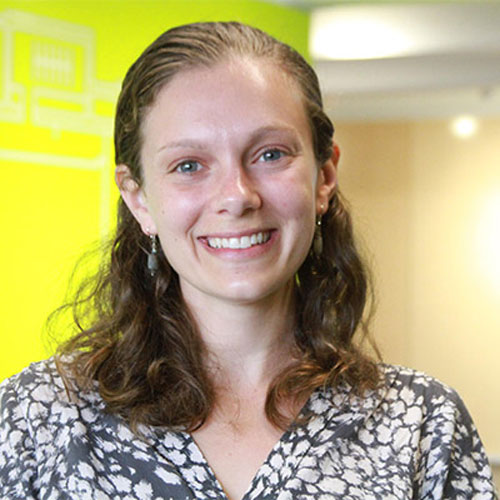 Paul teaches several large, required biostatistics courses, including Practical Data Analysis, R Programming, Big Data, and Data Science, to diverse students including first-year PhD Students, Master’s students, undergraduate statistics concentrators, and data science students. Her students appreciate her teaching methods, including flipped classrooms, group discussions, innovative final projects and fun topics (like solving murder mysteries involving data). Paul has implemented many of the techniques she learned as a Sheridan Scholar and puts in considerable work into staying abreast of the latest teaching techniques. Students praise her accessibility, respectful teaching philosophy, challenging homework assignments, and her encouragement.
Paul teaches several large, required biostatistics courses, including Practical Data Analysis, R Programming, Big Data, and Data Science, to diverse students including first-year PhD Students, Master’s students, undergraduate statistics concentrators, and data science students. Her students appreciate her teaching methods, including flipped classrooms, group discussions, innovative final projects and fun topics (like solving murder mysteries involving data). Paul has implemented many of the techniques she learned as a Sheridan Scholar and puts in considerable work into staying abreast of the latest teaching techniques. Students praise her accessibility, respectful teaching philosophy, challenging homework assignments, and her encouragement.
A course TA said, “As her TA, I saw that she was dedicated to making the course great. She is knowledgeable, engaging, and has strong communication skills. She implemented a lot of ideas to motivate and interest students.” A faculty colleague said of Paul, "Alice makes time for students outside of office hours and is always willing to spend extra time with students struggling with material. Students recognize that she cares about their learning and mastery of the subject, and they also appreciate the connections she makes between the class material and its application to real world problems and careers."
Excellence in Mentoring in Public Health
Deborah Pearlman, Associate Professor of the Practice of Epidemiology
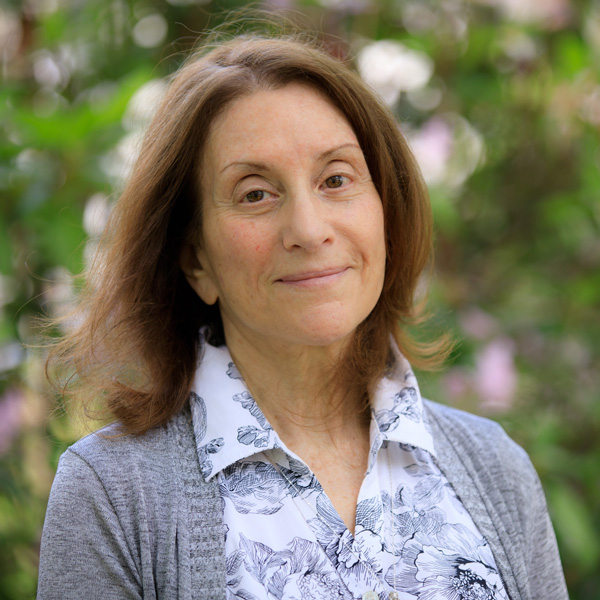 As Faculty Lead for the development and expansion of the Interdisciplinary Track of the MPH, formerly the Generalist track, Pearlman reviews each student’s concentration plan on an individual basis to make sure the plan has public health content and/or contributes to public health knowledge. In 2021, she provided guidance and individualized mentoring to 40 students who elected the Interdisciplinary track. Pearlman is also a prolific and outstanding master thesis mentor, having mentored over 50 MPH theses since 2005. To her advisees, Pearlman is known for her unwavering support and timely feedback.
As Faculty Lead for the development and expansion of the Interdisciplinary Track of the MPH, formerly the Generalist track, Pearlman reviews each student’s concentration plan on an individual basis to make sure the plan has public health content and/or contributes to public health knowledge. In 2021, she provided guidance and individualized mentoring to 40 students who elected the Interdisciplinary track. Pearlman is also a prolific and outstanding master thesis mentor, having mentored over 50 MPH theses since 2005. To her advisees, Pearlman is known for her unwavering support and timely feedback.
One student said of Pearlman, “she is committed and dedicated to her work, but most importantly, to helping others achieve the same success.” Another said, “she has made all the difference in my getting through the thesis project, and working with her has made me so much more confident in my public health work.” Finally, another student said Pearlman “is very committed to mentoring, truly cares about the success of her mentees, and constantly inspires students like me to be a 'productive member of society.' Additionally, she is kind-spirited, thoughtful of others, and continually motivates her mentees with her positivity.”
Brandon Marshall, Associate Professor of Epidemiology
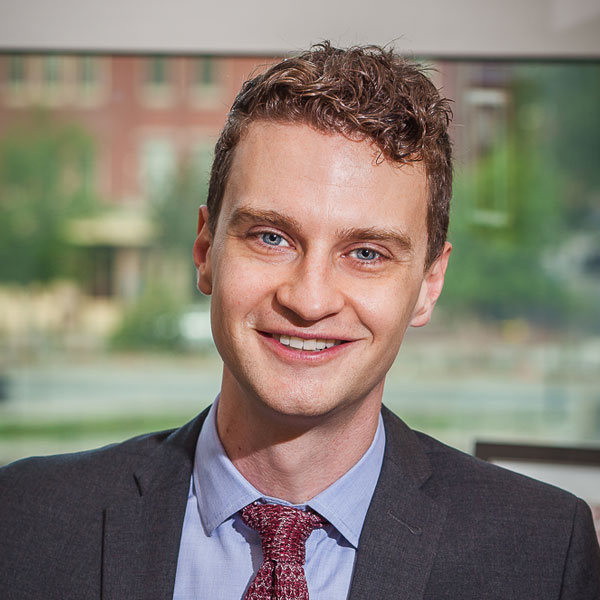 The founding director of the People, Place, and Health Collective, a group at Brown dedicated to conducting research on drug-related harms and their intersections with infectious diseases to support public health practice that is data-driven, people-centered, and place-oriented, Marshall is internationally renowned for his many contributions to the field of substance use epidemiology. In addition to his scientific achievements, Dr. Marshall has had an immeasurable impact on his mentees.
The founding director of the People, Place, and Health Collective, a group at Brown dedicated to conducting research on drug-related harms and their intersections with infectious diseases to support public health practice that is data-driven, people-centered, and place-oriented, Marshall is internationally renowned for his many contributions to the field of substance use epidemiology. In addition to his scientific achievements, Dr. Marshall has had an immeasurable impact on his mentees.
One student said that Marshall “encourages individual development while also fostering a strong working team environment, and cares about the mental health and personal well-being of those around him.” Another said that Marshall is an “ardent advocate for his mentees’ best interests, as well as a model for integrity and rigor in research.” Finally, another said that “he continuously pushed me to new heights as a researcher. He leads by example, strongly encouraging his mentees to explore epidemiologic questions that matter to us and to try out new approaches to finding solutions to some of our society's most pressing challenges.”
Excellence in Research Collaboration
Jaclyn White Hughto, Assistant Professor of Behavioral and Social Sciences and of Epidemiology
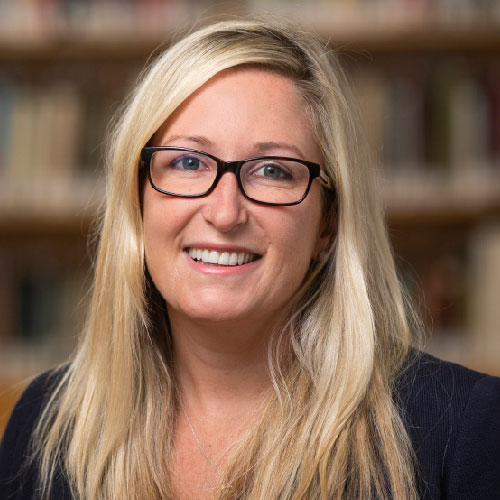 Hughto is a highly valued researcher in the school of Public Health known for her energy, insights, and broad research skills. Committed to bridging the gap between colleagues’ different disciplinary training, Hughto finds ways to bring students, faculty, and community leaders together on impactful projects that aim to reduce opioid dependence and transgender health disparities. Despite being a relatively junior faculty member, Hughto has authored nearly 100 publications and her research has been cited in testimony before state and federal courts to advance the health of marginalized populations.
Hughto is a highly valued researcher in the school of Public Health known for her energy, insights, and broad research skills. Committed to bridging the gap between colleagues’ different disciplinary training, Hughto finds ways to bring students, faculty, and community leaders together on impactful projects that aim to reduce opioid dependence and transgender health disparities. Despite being a relatively junior faculty member, Hughto has authored nearly 100 publications and her research has been cited in testimony before state and federal courts to advance the health of marginalized populations.
One faculty collaborator said, “I can’t think of anyone else who works across departments as often or as well as Jackie.” Another shared “Jackie's commitment to collaboration produces strong scholarship that can make meaningful contributions to the field of substance use and LGBTQ healthcare. I have been grateful for her desire to ensure inclusion and collaboration, her attentiveness to our roles and positionalities, and her constant desire to have a meaningful impact in her work.” Finally, another said, “Jackie has been so successful collaborating across diverse units with many faculty because she is thoughtful, driven, intelligent, responsive and kind. Can't ask for much more out of a collaborator!”
Excellence in Community Engagement
Patricia Risica, Associate Professor of Behavioral and Social Sciences and of Epidemiology
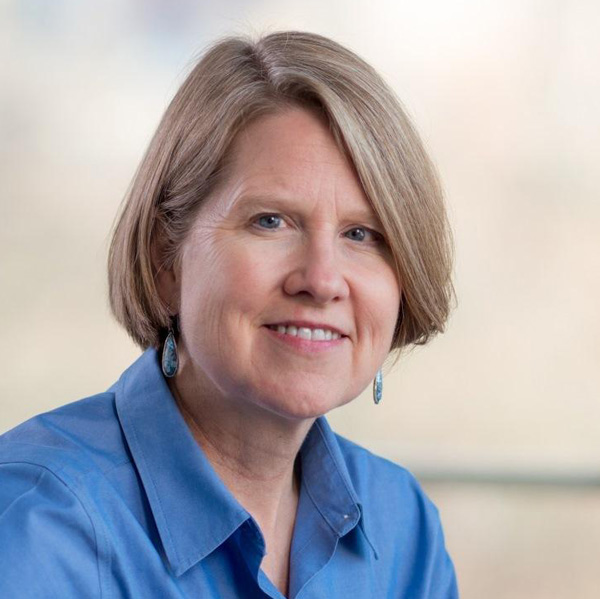 Risica is recognized with the Community Engagement Award for her notable work with the Rhode Island Public Health Association (RIPHA). The non-profit organization’s mission is to improve the health of Rhode Islanders through influencing public health policy and promoting public health practice. Risica was elected to the RIPHA board of directors in 1998 and has held several leadership positions within the organization, including Board President, nominations committee, awards committee, and Chair of the Advocacy Committee. Under her effective leadership, the organization has grown from fewer than 50 members to more than 1,000. This growth included strengthening the relationships with Brown University and other educational programs, and involving students more deeply in the work of the organization.
Risica is recognized with the Community Engagement Award for her notable work with the Rhode Island Public Health Association (RIPHA). The non-profit organization’s mission is to improve the health of Rhode Islanders through influencing public health policy and promoting public health practice. Risica was elected to the RIPHA board of directors in 1998 and has held several leadership positions within the organization, including Board President, nominations committee, awards committee, and Chair of the Advocacy Committee. Under her effective leadership, the organization has grown from fewer than 50 members to more than 1,000. This growth included strengthening the relationships with Brown University and other educational programs, and involving students more deeply in the work of the organization.
A faculty member said, “In large part because of Dr. Risica’s vision and leadership, the RIPHA provides a professional organization and venue for Brown students and faculty to participate in public health policy, advocacy, and practice in Rhode Island.”
Dean's Community Partner Award
Project Weber/RENEW
 While SPH partnerships with Project Weber (2008) and with RENEW (2006) date further back, since its formation as Project Weber/RENEW in 2016, the leading harm reduction and outreach organization in Rhode Island has been a regular partner of faculty, staff researchers, and students at the Brown School of Public Health. Their staff are frequent contributors to the education of Brown students and trainees through lectures and presentations and their offices serve as key research recruitment sites and as field sites for SPH student internships and thesis projects. An active collaborator on research projects addressing the health of people who use drugs, those engaged in sex work, those who are unstably housed, members of the LGBT+ communities, and people at the interesection of these experiences, Project Weber/RENEW currently partners on several faculty projects including those led by Professors Jackie Hughto, Alex Collins, Katie Biello, Brandon Marshall, and Dr. Phil Chan.
While SPH partnerships with Project Weber (2008) and with RENEW (2006) date further back, since its formation as Project Weber/RENEW in 2016, the leading harm reduction and outreach organization in Rhode Island has been a regular partner of faculty, staff researchers, and students at the Brown School of Public Health. Their staff are frequent contributors to the education of Brown students and trainees through lectures and presentations and their offices serve as key research recruitment sites and as field sites for SPH student internships and thesis projects. An active collaborator on research projects addressing the health of people who use drugs, those engaged in sex work, those who are unstably housed, members of the LGBT+ communities, and people at the interesection of these experiences, Project Weber/RENEW currently partners on several faculty projects including those led by Professors Jackie Hughto, Alex Collins, Katie Biello, Brandon Marshall, and Dr. Phil Chan.
One faculty partner said of Project Weber/RENEW, “They provide essential expertise into community needs, social determinants of risk and resilience, and the shifting ecological landscape of public health services for our city's most vulnerable people. Without their support, advocacy, and direct involvement, many of us would not be able to carry out our NIH- and other grant-funded projects. Project Weber/RENEW executive director Colleen Daley Ndoye is a champion and a vital lifeline between SPH and the community they serve.”
Another faculty member said, “The organization has a ‘can-do’ spirit. Despite having a small leadership team, Weber/Renew has managed to grow with leaps and bounds in previous years, expanding their offices from downtown Providence to Pawtucket and beyond. They have quite literally saved the lives of countless members of the greater Providence community through the services they provide.”
Staff Awards
2022 Dean’s Awards for Staff Excellence
Dean’s Staff Award for Excellence in Public Health Innovation
Maxwell Krieger, Program Manager, Epidemiology
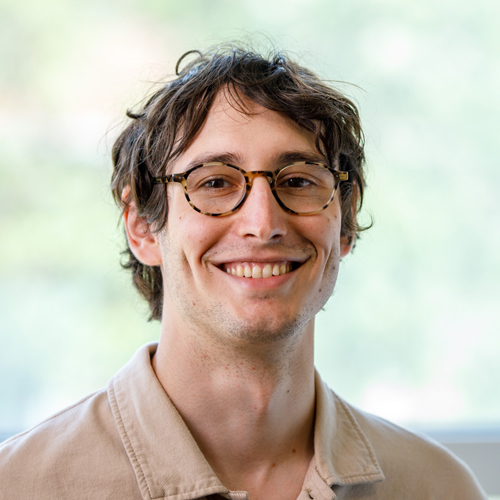 A program manager with the People, Place and Health Collective (PPHC) research team, Max helped launch PPHC's new R01 community trial, PROVIDENT, a research study that aims to prevent drug-related deaths in neighborhoods across Rhode Island by forecasting overdose trends and patterns in our state. The big challenge of PROVIDENT is how to disseminate complex predictive analytics results for ongoing use by local community-based organizations over the course of the 5-year study.
A program manager with the People, Place and Health Collective (PPHC) research team, Max helped launch PPHC's new R01 community trial, PROVIDENT, a research study that aims to prevent drug-related deaths in neighborhoods across Rhode Island by forecasting overdose trends and patterns in our state. The big challenge of PROVIDENT is how to disseminate complex predictive analytics results for ongoing use by local community-based organizations over the course of the 5-year study.
To bridge this gap, Max envisioned a new web-based mapping tool for PROVIDENT that would better engage our community-based partners delivering harm reduction and outreach services across the state. He developed strong partnerships with the Center for Computation and Visualization (CCV) at Brown and grew his skills to design and build a user-friendly mapping tool for community partners to guide how they deliver services in communities across Rhode Island. The mapping tool is driven by predictive analytics but offers a quick and efficient user interface.
Max’s nominators say he showed incredible leadership and innovation that was a true testament to his years of expertise in data visualization and data dashboarding in public health.
"By reaching out and partnering with key staff at CCV,” they said, “Max was able to pair his overdose data dashboarding skills with their advanced computing and web tool expertise. He also worked closely with CCV to ensure the needs of our community partners were met. The final product was the PROVIDENT web tool, a modern and engaging web app that is being used by community-based organizations working to stop overdoses across the state.”
Dean’s Staff Award for Excellence in Public Health Leadership
Jennifer Olson, Project Director, Center for Health Promotion and Health Equity
 A project director in the Center for Health Promotion and Health Equity, Jenny has worked in this role for 5 years supervising a large team of staff members, doctoral students, master’s students, and undergraduates and supporting the needs of faculty members across constantly fluctuating projects. From IRB submissions to traveling to Massachusetts to assist with in-person recruitment for studies, to mentoring students, Jenny handles her responsibilities with “professionalism, grace, and an incredible amount of skill.”
A project director in the Center for Health Promotion and Health Equity, Jenny has worked in this role for 5 years supervising a large team of staff members, doctoral students, master’s students, and undergraduates and supporting the needs of faculty members across constantly fluctuating projects. From IRB submissions to traveling to Massachusetts to assist with in-person recruitment for studies, to mentoring students, Jenny handles her responsibilities with “professionalism, grace, and an incredible amount of skill.”
In addition to her academic work at Brown, Jenny is often the face of our numerous community-engaged projects. “What impresses me most about Jenny's work is her commitment to community-focused research,” a nominator said. “She is always attending meetings with community organizations, both local and national, to share more about our research, learn about organizations’ work, and brainstorm ways to support each other. Jenny works to ensure that our research is actually meeting community partners' needs by maintaining continuous contact with them.”
“In my 20+ years of working in research,” another nominator said, “never have I seen another member of my team or colleagues’ teams perform at the incredibly high level that Jenny performs at. The accuracy of Jenny’s work, her ability to meet established goals and deadlines, her communication skills not only among the team but to outside colleagues/collaborators, funding agencies, and regulatory personnel, her sense of collaboration and teamwork, as well as her management capabilities, problem-solving skills, and dependability have been truly exemplary.”
“Jenny’s position is one of the most critical roles in any research group. She consistently maintains the vision, values, culture, objectives, and highest standards which enables us to successfully achieve the scientific goals of the study and produce quality work that informs policy decisions, treatment and prevention guidelines, and moves the scientific field forward.”